About First Steps Recovery
This was a luxury facility. They offered private rooms and healthy gourmet meals. They offered a detox service with a 24 hour medically trained staff. They provided medically assisted treatment to people who had too much discomfort from detox.
Clients enjoyed daily individual and group therapy sessions in a beautiful setting. All clients had a full evaluation before beginning therapy. The therapeutic methods used in the client’s individual therapy were curtailed to their needs.
They had many alternative therapies such as art therapy and group outdoor challenges and activities. They used psychoeducational therapy. This type of treatment educates the client about their own mental health conditions and helps them understand what caused those conditions.
The facility had a pool and a recreation room. They offered recreational therapy such as swimming and yoga. Clients enjoyed equine therapy and horseback riding. They also offered massage therapy and yoga.
Latest Reviews
Rehab Score
Other Forms of Payment
Self-pay involves paying for treatment out of your own pocket. You can use savings or credit, get a personal loan, or receive help from family and friends to fund your treatment. If you don't have insurance or your insurance plan doesn't cover a specific program, self-pay can help ensure you still get the care you need.
Private insurance refers to any kind of healthcare coverage that isn't from the state or federal government. This includes individual and family plans offered by an employer or purchased from the Insurance Marketplace. Every plan will have different requirements and out of pocket costs so be sure to get the full details before you start treatment.
Addiction Treatments
Levels of Care
Residential treatment programs are those that offer housing and meals in addition to substance abuse treatment. Rehab facilities that offer residential treatment allow patients to focus solely on recovery, in an environment totally separate from their lives. Some rehab centers specialize in short-term residential treatment (a few days to a week or two), while others solely provide treatment on a long-term basis (several weeks to months). Some offer both, and tailor treatment to the patient's individual requirements.
Aftercare refers to those continuous efforts, consisting of the addiction treatments and services that help to sustain the momentum of recovery. An aftercare plan is often comprised of group meetings and sessions, education and coaching services, and other types of programming that lasts for an unlimited amount of time after completing an initial treatment program, teaching individuals the necessary skills that eliminate the chance of reverting to substance abuse behavior. The development of an individualized aftercare plan is often included as part of intake or admission procedure, encouraging individuals to think ahead and make plans for sustaining their newfound sobriety.
Sober living acts as a segue into real life after treatment. They are there to provide additional support to people who may be in a new city or state, or people who are just not yet comfortable living on their own in sobriety. Many sober living houses have rules and regulations that must be followed by their residents and often times these rules can help newly sober people establish healthy routines that nurture their recovery.
Treatments
The goal of treatment for alcoholism is abstinence. Those with poor social support, poor motivation, or psychiatric disorders tend to relapse within a few years of treatment. For these people, success is measured by longer periods of abstinence, reduced use of alcohol, better health, and improved social functioning. Recovery and Maintenance are usually based on 12 step programs and AA meetings.
Drug rehab in California teaches participants constructive ways to stay clean and sober. Treatment revolves around helping individuals stop using the substance they are addicted to and learn healthy habits to avoid relapse.
Many of those suffering from addiction also suffer from mental or emotional illnesses like schizophrenia, bipolar disorder, depression, or anxiety disorders. Rehab and other substance abuse facilities treating those with a dual diagnosis or co-occurring disorder administer psychiatric treatment to address the person's mental health issue in addition to drug and alcohol rehabilitation.
A combined mental health and substance abuse rehab has the staff and resources available to handle individuals with both mental health and substance abuse issues. It can be challenging to determine where a specific symptom stems from (a mental health issue or an issue related to substance abuse), so mental health and substance abuse professionals are helpful in detangling symptoms and keeping treatment on track.
Opioid rehabs specialize in supporting those recovering from opioid addiction. They treat those suffering from addiction to illegal opioids like heroin, as well as prescription drugs like oxycodone. These centers typically combine both physical as well as mental and emotional support to help stop addiction. Physical support often includes medical detox and subsequent medical support (including medication), and mental support includes in-depth therapy to address the underlying causes of addiction.
Programs
Adult rehab programs include therapies tailored to each client's specific needs, goals, and recovery progress. They are tailored to the specific challenges adult clients may face, including family and work pressures and commitments. From inpatient and residential treatment to various levels of outpatient services, there are many options available. Some facilities also help adults work through co-occurring conditions, like anxiety, that can accompany addiction.
Young adulthood can be an exciting, yet difficult, time of transition. Individuals in their late teens to mid-20s face unique stressors related to school, jobs, families, and social circles, which can lead to a rise in substance use. Rehab centers with dedicated young adult programs will include activities and amenities that cater to this age group, with an emphasis on specialized counseling, peer socialization, and ongoing aftercare.
Clinical Services
Art therapy is more than tossing paint on a canvas or doodling random shapes. Art therapy programs allow clients to use their creativity and imagination to make create art that expresses what they truly feel in a healthy and productive way. Through art, clients are able to expand the ways they communication in order to help convey what they truly are thinking and feeling in the present. Art therapy programs for addiction in clovis are especially helpful for those people who have underlying psychological issues such as depression, anxiety and PTSD. A great benefit of art therapy in drug treatment it that it allows an individual total freedom of self‐expression and is a more open form of communication in comparison to traditional talk therapy methods.
Equine therapy, aka equine-assisted therapy (EAT), is a form of experiential therapy that involves interactions and activities with horses. It does not necessarily involve riding horses, but all activities related to horses, such as feeding, grooming, haltering and leading them. A mental health professional frequently oversees the activities (often in conjunction with a horse professional), and helps patients process their thoughts, feelings, and behavior patterns during and/or after the interaction.
Group therapy is any therapeutic work that happens in a group (not one-on-one). There are a number of different group therapy modalities, including support groups, experiential therapy, psycho-education, and more. Group therapy involves treatment as well as processing interaction between group members.
In individual therapy, a patient meets one-on-one with a trained psychologist or counselor. Therapy is a pivotal part of effective substance abuse treatment, as it often covers root causes of addiction, including challenges faced by the patient in their social, family, and work/school life.
Amenities
-
Private Setting
-
Yoga Studio
-
Hiking
Staff & Accreditations
Staff
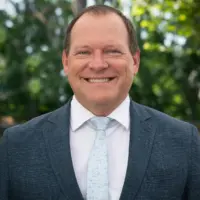
Josh Beauchaine, MS, LMFT 47103, CNDAI
Founder & President

Ben Beauchaine
Chief Operating Officer
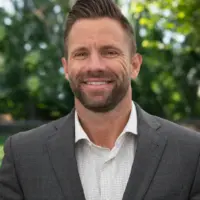
Scott Hongola, MS, CPA
Chief Financing Officer
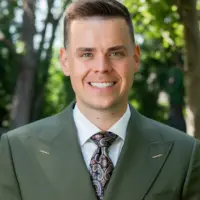
Sean Charters-MacChesney
Chief Management Officer
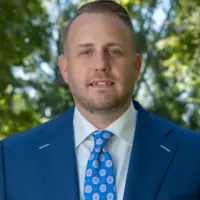
Mike Ivemeyer, CADC-II
Executive Director
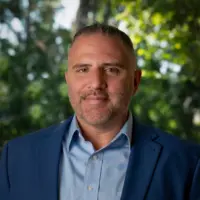
Chris Monterosa
Vice President for Clinical Outreach

Norris Curl, MD
Director of Medicine

Randall Turner, DO
Director of Psychiatry
Accreditations

The Joint Commission, formerly known as JCAHO, is a nonprofit organization that accredits rehab organizations and programs. Founded in 1951, the Joint Commision's mission is to improve the quality of patient care and demonstrating the quality of patient care.
Joint Commission Accreditation: Yes
Contact Information
19841 Redwing St
Los Angeles, CA 91364